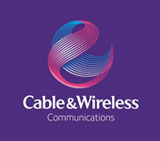 Cable & Wireless Panama
Cable & Wireless Panama
Transformation, innovation and Development
Cable & Wireless Panama is an excellent example of how privatization of a Government-owned telecoms operator can deliver huge benefits to a country. The Panama privatization, conducted in 1997, was very similar to the process that is planned for the Bahamas and BTC. Cable & Wireless Panama’s business has been on a journey from being a state-owned monopoly (like BTC) to what is now an competitive, customer-focused, but socially-conscious organization, that has been ranked by surveys one of the most admired company in Panama. Cable & Wireless Panama has a strong relationship with the union which represents its workers – a testimonial from the union leader at the Company is below.
Privatisation
On May 20th, 1997, Panama´s state-owned telecommunications company, INTEL, S.A was privatized with Cable & Wireless acquiring a controlling interest in the company.
Since 1997 the company has contributed to the Panamanian economy with more than US$4,660 million in dividends, investment, taxes, regulatory fees and licenses; occupying a leading position among companies in Panama. It has contributed more in dividends to the Panama Government (from its stake in the business) than any other Government shareholding.
With the privatization of INTEL, S.A. in 1997 and the opening of the market to competition in 2003, CWP has played an active role in providing interconnection facilities to other operators. It has been committed to ensuring a fully competitive environment as well improving its services for customers.
Customer focused
In a fully open telecommunication market with competition in all services; Cable & Wireless Panama (CWP) is the biggest mobile operator with over 2.7 million customers and 58% market share. In broadband, CWP has more than 140,000 customers and in fixed telephony more than 400,000 lines being the market leader in both segments as well. Recently, CWP extended its services into TV, launching a Digital pay TV business with more than 200 channels. The service has been instantly popular, already gaining more than 15% of the market share. This product service platform allows customers to enjoy a full “quad play” offer (mobile, fixed-line, broadband and TV), and CWP is the only operator to offer this in Panama.
In addition, CWP provides customized telecom solutions to business and government institutions, including security systems, telemedicine, teleradiology, telemetry, telemammography, emergency services, educational systems. These are highly sophisticated solutions, where telecoms networks can be used to significantly upgrade Government services, like healthcare, or the operation of a business. CWP also manages the five undersea fibre optic cables that land today in Panama connecting the Pacific, the Atlantic and the Americas. Through these cables, CWP provides a top quality, fully redundant network that offers unsurpassed national and international connectivity for Panama and several countries throughout the Americas.
Socially conscious
For CWP, success in business must go hand in hand with strong societal values, and for this reason it is committed to the objectives of the UN´s Global Compact. CWP has focused on being a good corporate citizen and understanding the needs of the Panamanian society. CWP conducts its business with honesty, transparency and respect for its customers, partners, employees, the environment and the community in general. When reviewing its corporate actions, CWP is proud to be among the largest corporate contributors to Panama´s education, sports, culture, poverty.
CWP is also strongly committed to supporting the individual development of its employees. CWP’s greatest assets are its people and the company is committed to providing excellent working conditions.
Recognition
Many business magazines and consulting firms have recognized CWP as a model of Panamanian pride and business excellence. Recent surveys and studies acknowledging this include:
• Consulting firm Unimer conducted a study which indicated CWP was second only to the Panama Canal Authority for the best corporate image
• Research by Dichter & Neira and Globescan, market research firms, ranked CWP as the leading company in Panama for Corporate Social Responsibility initiatives
• Research by SUMMA, a Central American business magazine, highlighted CWP as one of the most admired companies in the region;
• Estrategia & Negocios, a Central American business magazine, ranked CWP No. 1 on its Best Companies to work for in Central America
• Mercados & Tendencias, a Central American business magazine, in a survey tracking the most recognized and preferred brands and companies in the region, placed CWP as the leader in Panama and occupying a leading position in the Central American region.
For its employee work environment, CWP has been recognized for two consecutive years (2009-2010) by the prestigious Gallup Research group with a “Great Work Place Award”, one of only two Latin American firms to receive this award. Gallup’s research cover more than one million work force groups in 150 countries.
Statement from CWP’s Union Secretary
As a testimony of the excellent working conditions in CWP, the Union Secretary of the Company Denia de Powell commented on December 11, 2010:
“The Cable & Wireless Panama Union maintains a very positive, constructive and vigilant relationship with the company; working together to achieve common objectives and continue to position it as the leader in Panama. We work on a scheme of open communication and transparent company-union relationship where we ventilate our plans, objectives and goals. We have also concluded the signature of a collective bargaining agreement in a friendly environment, where our employees and the company succeeded in framing the benefits and responsibilities with satisfactory results for both parties. Our workforce is committed to the present and the future of CWP always giving the extra mile to ensure that as shareholders of the company, we can achieve the best results because of our hard work and daily commitment.”


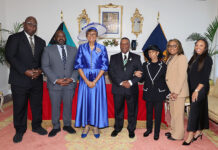
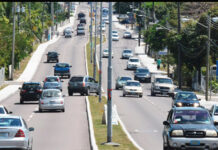

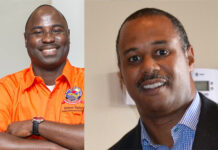
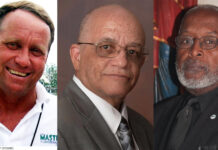
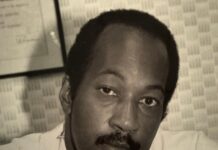
very good post, i was really searching for this topic as i wanted this topic to understand completely and it is also very rare in internet that is why it was very difficult to understand. thank you for sharing this.
Regard
Share Market
Judgement against C&W 28/9/10
http://www.jcpc.gov.uk/docs/JCPC_2010_0013_judgment.pdf
COMMON SENSE, UNCOMMON INSIGHT
Sometimes the Truth Hurts, just like a tamarind switch
stay updated via rss
ARCHIVES
RECENT POSTS
A Leopard Cannot Change his Spots
Non-Profit mistreating Staff? Say it Isn’t So
Mr. Ingraham FOC-US on BTC
In Lieu of An Article
Who is the Aga Khan??
CATEGORIES
1
Around the Water Cooler
Back in the Day
General Delivery
Potlicks
Random Stuff that We Thought Was Funny
RECENT COMMENTS
tamrinswitch on EXCLUSIVE: BTC To Be Sold To C…
pat williams on EXCLUSIVE: BTC To Be Sold To C…
Wow on Non-Profit mistreating Staff? …
Lex Gibson on BILATERAL TALKS HELD AT LICKET…
Jennifer Johnson on Subjectivity on Display
BLOGROLL
Bahamas Press
Bahamas Uncensored
Big Bad Brad’s Blog
Jerome Fitzgerald
Ken Dorsett’s Blog
Kendal Major
L. Ryan Pinder
Tamrinswitch: Common Sense, Uncommon Insight
The Daily Kos
The FNM
The Gleaner
The Huffington Post
The PLP
The View from Europe
The Workers Coalition
Unscripted
Unscripted on Facebook
URB.com
PAGES
About
META
Register
Log in
Entries RSS
Comments RSS
WordPress.com
EMAIL SUBSCRIPTION
Enter your email address to subscribe to this blog and receive notifications of new posts by email.
A Leopard Cannot Change his Spots
Posted: December 11, 2010 by tamrinswitch in General Delivery
0
In 2007 while campaigning, Hubert Ingraham famously declared that he was a “changed man.” He said he had grandchildren now and his perspective had changed. Little did we know that that was an ominous warning for things to come. Recently, facing the criticism over his gift of our birthright to Cable & Wireless, a company notorious for its dubious, heavy handed and poor customer service in this region, Mr. Ingraham once again declared the Cable & Wireless had “changed.”
The article below was written almost a decade ago. Is this what they are saying they have changed from, or is this what the Bahamian people can come to expect from Cable & Wireless? You be the judge.
Panama‘s Wires Crossed
Michelle Lescure, World Press Review correspondent, Panama City , Panama , Aug. 1, 2002
As the world continues to absorb the fallout from corporate scandals in the United States , evidence is emerging that raises suspicions that a British telecommunications company may have colluded with the Panamanian government in a sweetheart privatization deal, then mismanaged the company at the expense of customers and employees.
In 1997, U.K.-based Cable and Wireless PLC (C&W) outbid U.S.-based GTE by US$232 million to purchase 49 percent of the shares of Panama’s state-owned telecommunications company, INTEL, which had been converted into a Sociedad Anónima (private corporation) shortly before being put up for sale.
If C&W’s bid seemed a little high, it did not raise many eyebrows outside the next meeting of its board. But as previously unreleased documents—including the contracts for the sale of the company and for the concession to administer and operate the phone company—emerge, they are casting shadows on an already unpopular deal.
The sale of such a major state asset would seem to be the stuff of which grueling committee hearings and ferocious legislative debates are made. Yet Panama ’s Legislative Assembly never had the opportunity to debate or approve the deal. The contract was signed, sealed, and delivered by the executive branch, acting alone.
According to the rationale offered to telephone workers and the nation at large at the time, INTEL was privatized because it didn’t have the resources to make necessary structural and technological investments, and because the government was a poor administrator. Private enterprise, it was believed, would be more successful in the company’s management. C&W was touted because it was supposed to be serious about expanding services, had solid capital resources to invest, and had long experience in the telecommunications field.
Public government records indicate that even through the rockiest periods of Panama ’s recent history, INTEL earned Panama an average net profit of US$150 million yearly. But since the sale, despite increases in the number of customers and raises in rates for calls and other services, the government has only received some US$30 million per year for its 49 percent stake in the company.
After the company privatized, unpopular measures were imposed. Student protests—dispersed with teargas—followed a 500-percent hike in the cost of phone calls within Panama . Millions of dollars were invested in a call center with dubious prospects for profitability. The company’s purchasing office was moved to Miami , raising costs and adding another layer of intermediaries to transactions. Many qualified workers were laid off, raising unemployment figures just as the Panamanian economy was beginning to stagnate.
Today, documents are coming to light that cast suspicion on the deal.
It was not known to all bidders, for example, that after privatization INTEL would be left with a cash flow of more than US$109 million, or that it would benefit from two government promissory notes. But C&W did know, as evidenced by the document certifying their purchase of the shares. The promissory notes’ value is still not known by the press, the public, or indeed by the phone company workers, who own 2 percent of the privatized company’s shares.
Likewise, only C&W knew that, notwithstanding the stringent bid prequalification requirements, the winning bidder would be allowed to assign operation and administration functions to subsidiaries—in this case, Cable & Wireless Holding and Cable & Wireless Cala Management Services Limited, which was registered in Algeria with only one pound sterling as capital to invest in Panama . Public Registry records also reveal that C&W was never registered in Panama and had no legal representative in Panama . Yet the bidding rules clearly stated that bidders needed to be registered in Panama .
In the transfer of 49 percent of the shares, it was stipulated that C&W was not obliged to be the phone system’s direct operators, but would only be consultants. Nevertheless, the company was given a percentage of gross annual revenues, a percentage of pre-tax profits, and a percentage of the income from other sinking funds, which would normally go to the network’s operators, employees, or other shareholders.
The revelations come after a series of controversial privatizations. In 1997 and 1998, then-U.S. Ambassador to Panama William Hughes complained that the playing field in the bid for Panama ’s privatizing industries was not level.
On June 11, 2002, workers for the old INTEL sent a letter to President Mireya Moscoso supporting Ambassador Hughes’ protests, and extending them to INTEL’s sale.
The workers’ letter to President Moscoso charged that the company had been seriously mismanaged since its sale. For example, they observed, the general manager and executive team of C&W Panama had been changed four times in roughly as many years, and that 50 executives had been fired “at the stroke of a pen.”
Other company directives affected the former INTEL workers more directly. A 1995 law under which the utility was privatized said that the government, which would be a partner in the company, would deposit workers’ money into an account at the National Bank of Panama , and that workers would not be charged fees for this service. But the old utility’s employees, who weren’t privy to information about funds that were legally theirs, later found that their money had been deposited in a private bank run by a close friend of former President Ernesto Pérez Balladares, and that fees were being charged for the bank’s services. That bank has since ceased to exist, having been absorbed in a merger, and the acquiring bank now has the workers’ money. It is deducting fees for the services it has rendered.
At the end of 1999, an internal company report conducted by C&W’s Washington Audit Group found “the current situation… unsatisfactory…. Capital has been spent in unproductive and wasteful ways… with little previous preparation… [on] ill-advised projects… [with] insufficient planning and supervision….” Moreover, C&W’s internal reviewers found, “Constant management changes in the past two years have not helped… as the lack of a consistent focus [or] direction has obstructed the adoption of the best practices.” They concluded that mismanagement on the part of the executives, vice-presidents, and managers had caused enormous losses for C&W Panama and the government.
Representatives of the prestigious accounting and consulting firm KPMG, C&W’s auditors, were copied on the report.
Yet even as popular frustration with the administration of Panama ’s telecommunications network grew, public and corporate officials alike continued to inform the media, as well as C&W’s international partners in Panama , that nothing was seriously amiss at C&W Panama.
A Grand Tradition…
C&W’s critics charge that the company has changed little since its days as a 19th-century colonial monopoly extending across the British Empire .
The company’s ancestor laid the first trans-Atlantic telegraph cable in 1858. Though that particular project enjoyed only short-lived success, by 1927—after a series of mergers—C&W’s telegraph network spanned the globe. And though the company mostly set up shop in places with limited economic resources, it was usually able to extract its “pound of flesh.”
When Hong Kong was transferred from British control in 1997, taxpayers were forced to cough up billions to compensate C&W for breaking a monopoly license granted by the British administration in the mid-1980s. It may have seemed worth it to the taxpayers. During C&W’s monopoly, the company charged international rates for phone calls to Macao or other adjacent Chinese cities only 15 miles away.
Others have charged that the company still extorts unreasonably high rates from its clients in the Americas . In March 2001, five Caribbean nations joined together to force C&W to give up its monopoly, claiming that inflated phone costs were leaving them marginalized in the world economy. C&W tried to scare them off with predictions of a chaotic transition that would likely lead to phone service being disrupted. Service was never seriously disrupted, but the islands did suffer when C&W fired hundreds of its employees after losing its monopoly.
Tangled
Today, C&W Panama faces trials and lawsuits involving more than US$150 million demanded by suppliers and contractors. In February, the Public Services Regulating Entity, a government board that oversees privatized enterprises, fined C&W for non-compliance with a concession contract clause about maintenance of public telephones.
The workers who own the remaining 2 percent of the Panamanian C&W subsidiary’s shares have filed lawsuits to annul a bidding process they consider rigged, and to review the telecommunications company’s activities in Panama . After many protests sent to legislators, government ministers, and the president, they’re now seeing signs that give them hope that their concerns will be addressed. The workers and shareholders are claiming deceit, conspiracy, collusion, misappropriation, arbitrary use of public assets, and securities fraud. The latter offense is alleged to have been committed in concert with KPMG.
The big question now is whether GTE will sue the Panamanian government. A source close to the negotiations, who spoke on condition of anonymity, says that lawyers are set to meet with representatives of GTE and Mexican companies that had formerly provided services to C&W in Panama to discuss the possibility of such a lawsuit.
At present, neither President Moscoso nor Panama ’s comptroller general have addressed the workers’ complaints. The president of the Legislative Assembly has merely acknowledged receiving their note. Meanwhile Panamanians are losing patience with C&W’s inflated prices, billing errors, botched contracts, and spotty service.
One way or another, the concession will be revised. Under the terms of the 1997 privatization deal, C&W’s monopoly over fixed-line telephone services terminates at the end of this year, while the cellular phone duopoly that it shares with BellSouth runs through 2007. TRICOM, a company based in the Dominican Republic , is fighting in the Panamanian courts for the right to offer cellular service, and a Panamanian investment group headed by members of the wealthy Motta family has created a new phone company, Telecarrier, to compete in the postmonopoly fixed line business starting next year. Both are meeting stiff resistance from C&W.
The messy privatization of Panama ’s telecom network raises fundamental questions about governments’ assurances for foreign investments in “developing” countries. Panamanian business and consumer groups alike are increasingly of the opinion that guarantees for foreign investors shouldn’t amount to modern-day letters of marque for financial piracy, and that the purchase of a state-owned monopoly shouldn’t be a license to violate a country’s constitution and laws, jack up prices for an essential service, and prejudice the public interest. Current worldwide disillusionment with corporate misconduct suggests that their voices may soon be heard.
This article/press release doesn’t address the subject of http://www.worldpress.org/Americas/653.cfm
it doesn’t address documents that came to light that cast suspicion on the deal.
it amounts to me as a telecommunications rapist claiming that I should have a second look at how they am being praised after the rape.
self praise is no recommendation.
HAI says it best. you will know me by my actions.
I know a guy that hugs his wife after giving her a good slapping around.
would this be the same.
you could lipstick on a pig and it would still be a pig.i don’t care how c&w try to spin the sale of btc in their favour it’s a bad deal form generations of bahamians to come.if you follow the news in the world circuit city was a blue chip company,until they tried to expand and buy a few strugling companys the minute those companys faild circuit city went under.my point is c&w is a company going through it’s problems in the uk.when they buy 51% of btc they will own it no matter what any body says, so if c&w uk fails btc will fail also.dont belive the hype these spin doctors are trying to put on the situation,last week i watched our president of the apeal court swear allegance to the queen in england.when will we as a people love our self and stop being a colony of england.LO,CECIL AND ALL OF THOSE MEN OF THE PAST MUST BE MUST BE TURNING IN THEIR GRAVES.GOD SAVE THE BAHAMAS.
1. Oath of Allegiance.
I, ………………………………………… do swear that I will be faithful and bear true allegiance to Her Majesty Queen Elizabeth the Second, Her Heirs and Successors, according to law. So help me God.
2. Oath for the due execution of the office of Governor-General.
I, ………………………………………. do swear that I will well and truly serve Her Majesty Queen Elizabeth the Second in the office of Governor-General. So help me God.
3. Oath for the due execution of the office of Prime Minister or other Minister or Parliamentary Secretary.
I, …………………………………………………… being appointed Prime Minister/Minister/Parliamentary Secretary, do swear that I will to the best of my judgment, at all times when so required, freely give my counsel and advice to the Governor-General (or any other person for the time being lawfully performing the functions of that office) for the good management of the public affairs of The Bahamas, and I do further swear that I will not on any account, at any time whatsoever, disclose the counsel, advice, opinion or vote of any particular Minister or Parliamentary Secretary and that I will not, except with the authority of the Cabinet and to such extent as may be required for the good management of the affairs of The Bahamas, directly or indirectly reveal the business or proceedings of the Cabinet or the nature or contents of any documents communicated to me as Prime Minister/Minister/Parliamentary Secretary or any matter coming to my knowledge in my capacity as such and that in all things I will be a true and faithful Prime Minister/Minister/Parliamentary Secretary. So help me God.
4. Judicial Oath.
I, ……………………………………………… do swear that I will well and truly serve Her Majesty Queen Elizabeth the Second, Her Heirs and Successors, in the office of ………………………………………. and will do right to all manner of people after the laws and usages of The Bahamas without fear or favour, affection or ill will. So help me God.
Comments are closed.